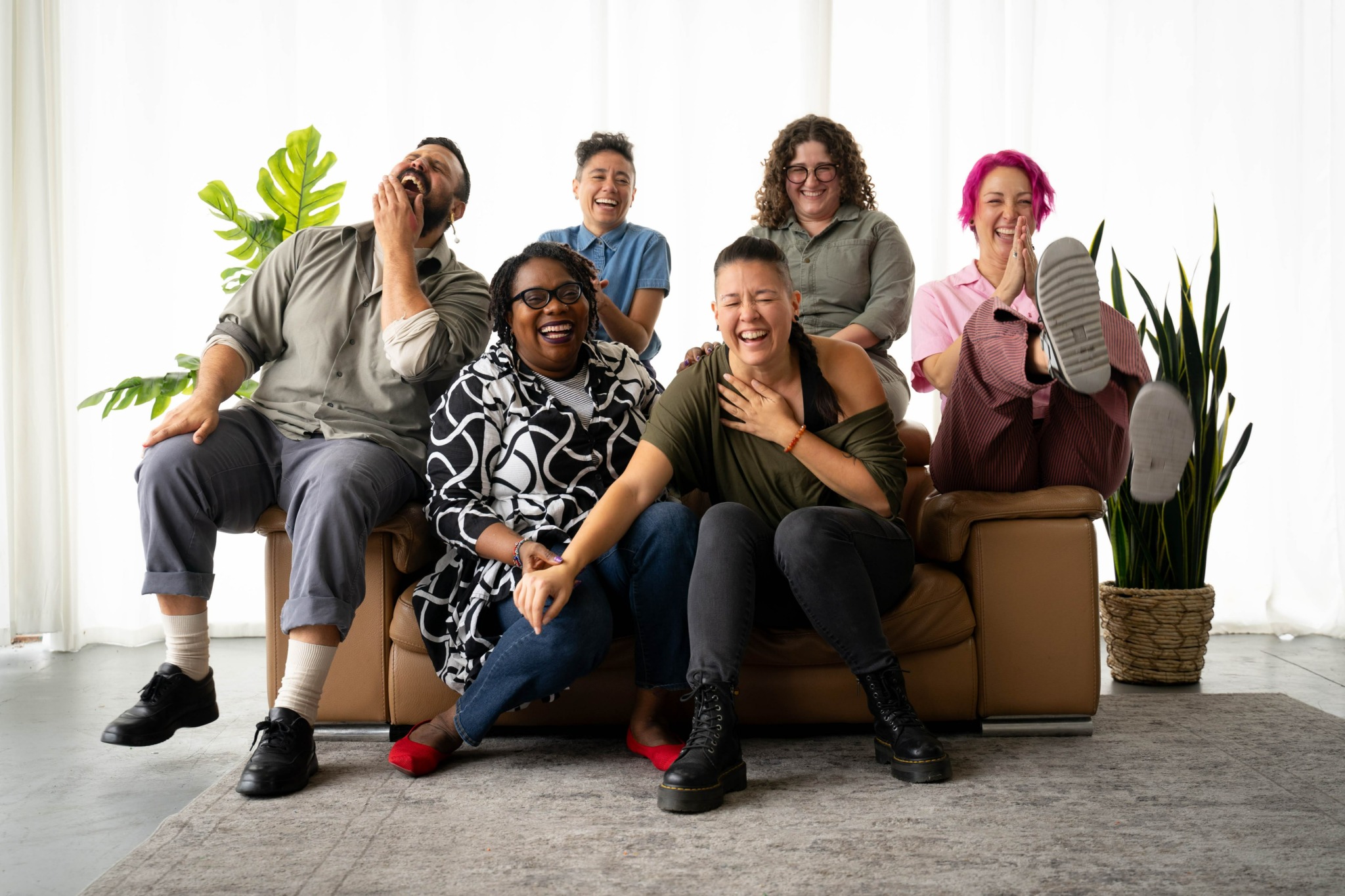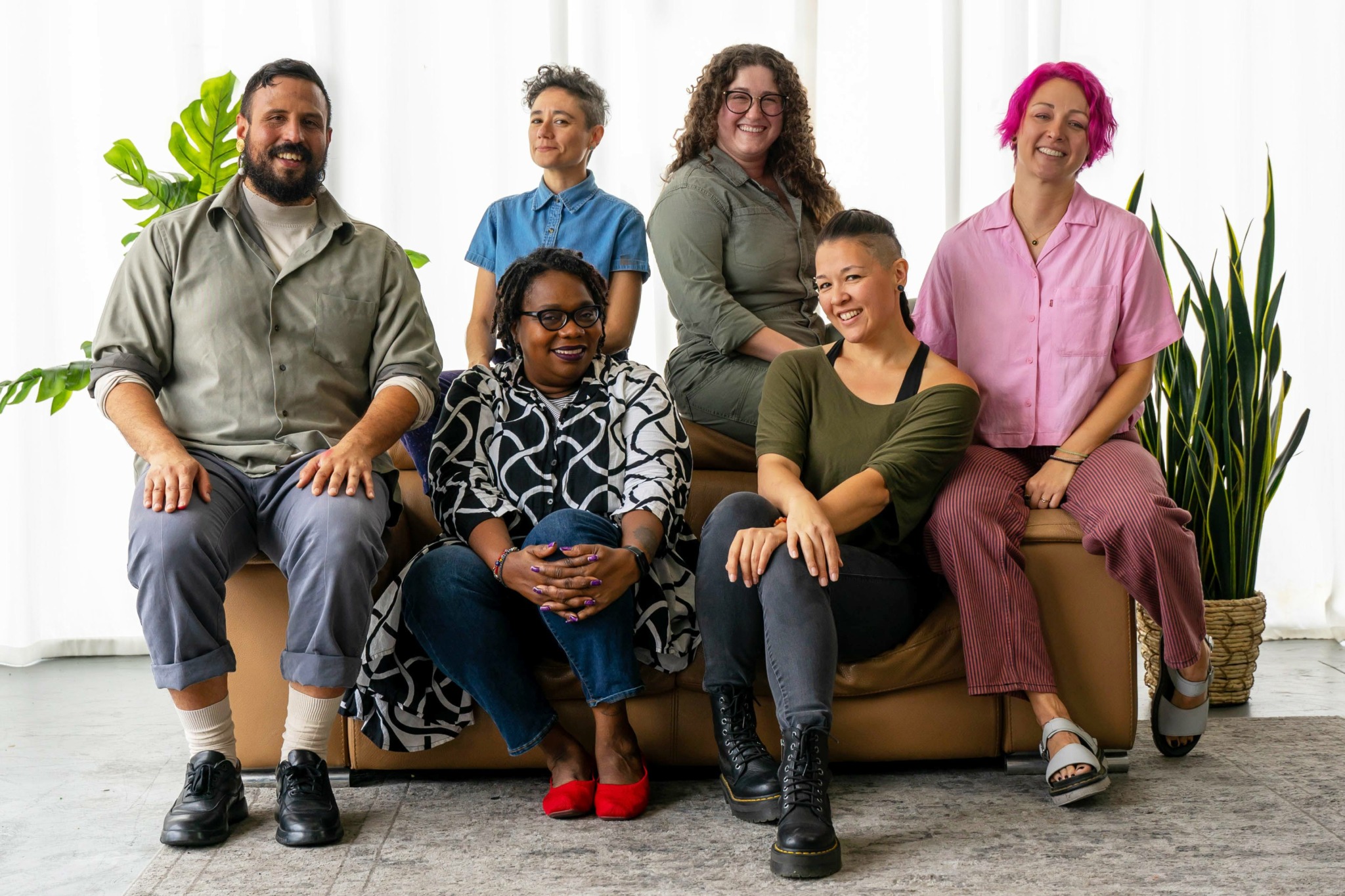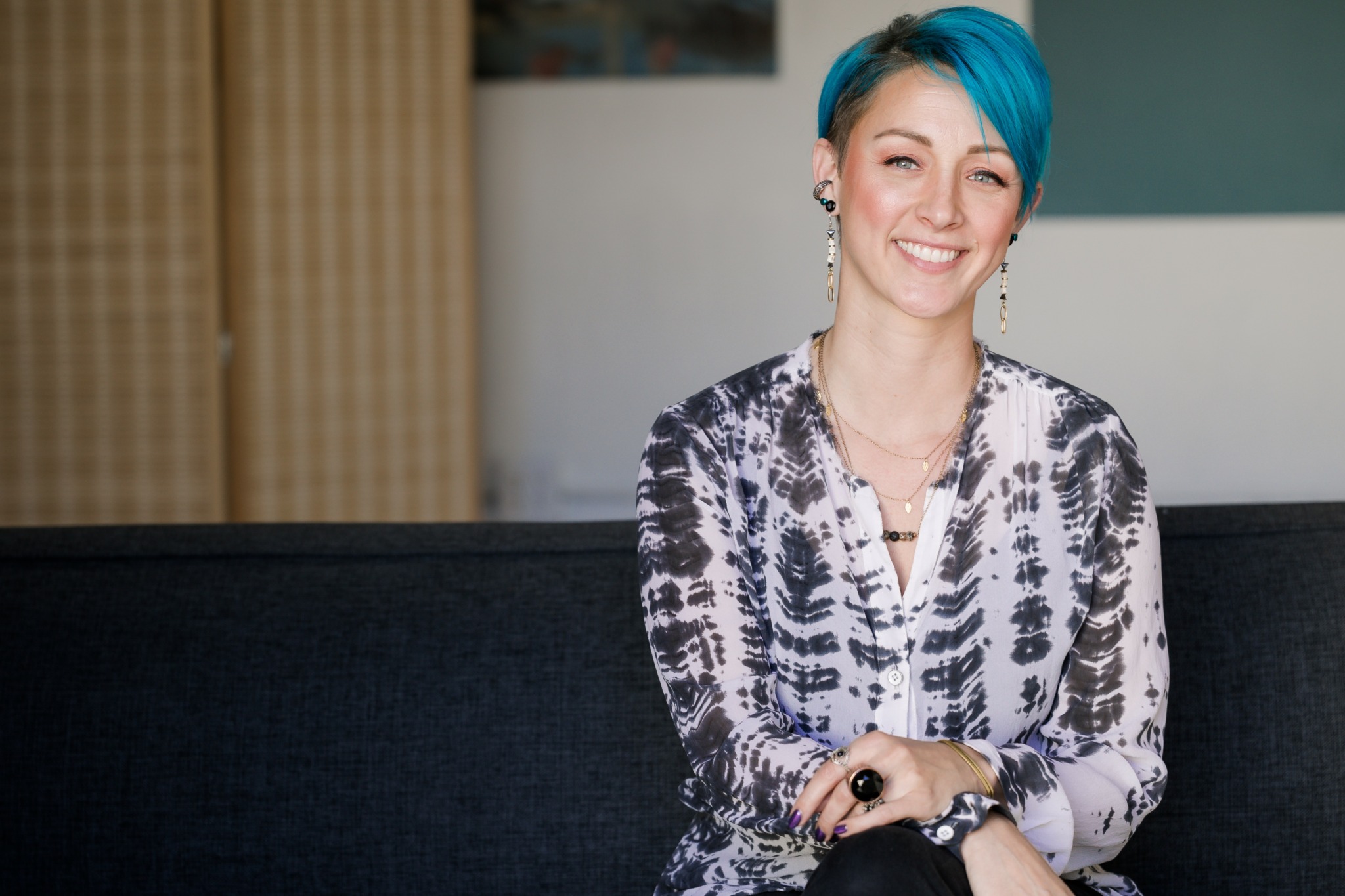We’re excited to introduce you to the always interesting and insightful Renae Johnson. We hope you’ll enjoy our conversation with Renae below.
Renae, looking forward to hearing all of your stories today. When you’ve been a professional in an industry for long enough, you’ll experience moments when the entire field takes a U-Turn, an instance where the consensus completely flips upside down or where the “best practices” completely change. If you’ve experienced such a U-Turn over the course of your professional career, we’d love to hear about it.
The mental health profession has undergone numerous significant shifts over the years, but one of the most inspiring changes I’ve witnessed in the past 15 years is a client-led U-turn that mirrors a broader cultural transformation. Before diving into this shift, I want to acknowledge the efforts of the mentors and professionals I reference in this reflection. They worked with care and compassion within the mental health frameworks of their time. However, it’s essential to recognize that the field has long been—and, in many ways, remains—deeply rooted in Eurocentric, heteronormative, and patriarchal ideologies.
When I began my career, the seeds of human-centered care were just being planted in classrooms and clinics, but the field still clung to its Freudian legacy of pathologizing clients and their symptoms. Early in my training in 2010, I worked at a last-chance GED program in New York City, where I saw firsthand how entrenched these outdated approaches were. Many of my mentors, despite their good intentions, would lash out at highly traumatized teens, labeling them as “lazy,” “unfocused,” or “uncaring about their future.” These reactions stemmed from a failure to zoom out and consider the teens’ environments, histories of trauma, or neurodiversity. Instead of asking, “What happened to this teen, and how can we best support them?” the focus was on labeling and dismissing them, often creating even greater barriers to effective treatment.
At the time, discussions of neurodivergence were virtually absent in professional settings. On the rare occasions it came up, it was framed dismissively, as if the best outcome for neurodivergent students was merely “getting by.” Conversations about modifying curriculums, providing accommodations, or even identifying the nature of a student’s neurodiversity were nonexistent. The professionals in these settings were doing the best they could with limited resources and knowledge, but there was a glaring lack of training and understanding regarding the interplay of trauma, neurodiversity, and systemic barriers.
The shortcomings extended to graduate classrooms as well. As a queer, nonbinary person (although I didn’t have that language at the time) who was often read as cisgender and heterosexual, I struggled to find space to explore LGBTQ+ identities and theories—both for myself and for how to best support my LGBTQ+ clients. There was one “cultural competency” class in my program, taught by a well-meaning but deeply unprepared white, cisgender, straight professor. The curriculum barely scratched the surface of how privilege, race, gender, sexuality, and cultural background shape the therapeutic dynamic. It was a hesitant step away from the “color-blind” mentality, but it lacked depth, nuance, and meaningful conversation about intersectionality or systemic oppression.
The overarching message was clear: Therapists should be able to treat any client, regardless of identity or privilege differences, as long as they “ask questions” and avoid “pretending to understand the client’s experience.” This oversimplification ignored the power imbalances and the deeper work therapists must do to understand their own biases and the impact of systemic oppression on their clients.
One personal experience with a professor still lingers in my mind as a reminder of how passive-aggressive systems of oppression manifest. During a casual conversation with fellow students and professors about how parenthood can shape the therapist-client dynamic, I mentioned that I didn’t feel a maternal connection in my work because I don’t experience maternity as part of my gender identity. A professor, without hesitation, interrupted and said, “Oh, well that can’t be true. You’re a maternal person, and it will show up in your client work.” Then she turned back to the group and continued the conversation, leaving me stunned and silenced. It was a subtle but powerful dismissal of my identity, a reminder of how easily systems of power maintain themselves through microaggressions.
Fast forward to 2025, and the mental health profession has made remarkable strides, although there is still much work to be done. Conversations about decolonizing mental health care are at the forefront, challenging practitioners to confront their own biases and the power dynamics inherent in the therapeutic relationship. Education on race, culture, LGBTQ+ issues, and neurodiversity has become more comprehensive, pushing the field toward a deeper understanding of intersectionality.
The once-rigid notion of therapy as a tool solely for “people with issues” has been replaced by a growing recognition that mental health care is essential for everyone. Social media movements like #therapyforall have helped destigmatize seeking support, framing therapy as a universal resource for living a healthier, more intentional life.
Perhaps most encouraging is the push to move away from pathologizing clients based on their symptoms. The focus has shifted to understanding the whole person—their lived experiences, systemic challenges, and cultural contexts. This holistic approach demands that mental health professionals meet clients where they are, centering care on collaboration and respect rather than outdated hierarchies.
While we still have a long way to go in addressing the field’s entrenched biases and systemic inequities, these shifts are a testament to the power of client advocacy and cultural change. The mental health profession is evolving, not just because of internal reforms but because clients and communities are demanding better. And that, to me, is the most hopeful U-turn of all.

Renae, love having you share your insights with us. Before we ask you more questions, maybe you can take a moment to introduce yourself to our readers who might have missed our earlier conversations?
Hi, I’m Renae Johnson, LPCC, ATR-BC (they/them), and I’m the founder of Open Space Therapy Collective (OSTC). My journey into mental health care began with a clear passion: to create a space where LGBTQIA+ individuals could find affirming, culturally competent therapy while also supporting the professional development of therapists who share this vision.
As a queer person, I was also struck by how little mental health care accounted for the lived experiences of LGBTQIA+ individuals. Clients would come to therapy with deeply personal and complex challenges—navigating medical transitions, untangling religious trauma, or simply seeking validation for who they are—only to find that their therapists lacked the cultural understanding to support them effectively. These experiences solidified my belief that our community needed therapists who could meet clients with empathy, understanding, and expertise rooted in lived experience.
Over the years, I specialized in trauma work and deepened my focus on LGBTQIA+ care. But as I moved into leadership roles in non-profits, it became clear that the existing systems weren’t just failing clients—they were also burning out therapists. Many of my colleagues, especially those from marginalized identities, were struggling to sustain their careers in environments that demanded so much while giving so little. I knew there had to be a better way.
In 2022, I founded Open Space Therapy Collective with a mission to address these dual challenges. First, I wanted to create a supportive, accessible pathway for therapists to build thriving careers in a field that too often undervalues their labor. Second, I wanted to ensure that LGBTQIA+ clients could access affirming, trauma-informed care tailored to their unique needs.
OSTC is built on the belief that mental health care cannot be separated from the systems of oppression that shape our lives. Our practice is intentionally anti-oppressive, anti-racist, and body-celebratory. We understand the deep connections between historic systems of marginalization and mental health and work to foster healing within this context.
Today, OSTC offers in-person therapy in Los Angeles and telehealth throughout California. Our therapists are either members of the LGBTQIA+ community or staunch allies, allowing clients to feel understood and validated without having to educate their therapist about their identities or experiences. We specialize in areas such as trauma, identity exploration, and navigating challenges unique to the queer community.
But OSTC is about more than therapy sessions—it’s about building community. For our clients, that means creating a space where they feel seen and supported. For our therapists, it means offering training, supervision, and career development opportunities in an environment that values connection and mutual growth. We believe that when therapists thrive, clients benefit—and when clients grow, therapists are inspired to do the same.
Putting training and knowledge aside, what else do you think really matters in terms of succeeding in your field?
Beyond training and knowledge, I believe community is one of the most crucial elements for succeeding in the mental health field—or any field, really. Having a strong network of both personal and professional connections makes all the difference.
In this work, we’re constantly navigating complex emotions, ethical dilemmas, and systemic challenges. Having people you can process ideas with—whether it’s brainstorming new approaches to client care, debriefing after a tough day, or troubleshooting business challenges—provides invaluable perspective. It’s in these collaborative moments that creativity flourishes and growth happens.
Community is also where collaboration and innovation are born. Building projects with people who share your passion and vision can turn ambitious ideas into reality. For me, that’s how Open Space Therapy Collective came to life—through conversations, shared goals, and mutual support among like-minded colleagues who wanted to create something bigger than ourselves.
But community isn’t just about building; it’s also about learning and growing. The people around you offer opportunities for mentorship, mutual support, and inspiration. You need people who challenge your thinking, who remind you of your “why,” and who encourage you to keep pushing forward when things get hard. Just as importantly, you need people you trust to give you honest feedback and to celebrate your wins, no matter how big or small.
In this field, it’s easy to feel isolated, especially when you’re carrying the weight of your clients’ stories, your responsibility for your staff’s livelihood, or navigating your path as a therapist. Having a network of people who truly “get it” is essential—not only for your professional success but for your own well-being. Community provides the trust, encouragement, and shared wisdom we all need to thrive, both personally and professionally.

How do you keep your team’s morale high?
In my 20s, I had a boss—now a long-time friend—who told me, “I never ask my staff to do more than I’m doing myself.” That simple statement has stayed with me for over two decades and has become a cornerstone of how I approach team management. It’s a philosophy rooted in integrity and shared effort, and it’s one I’ve found to be crucial for fostering trust and maintaining high morale.
What I’ve noticed in today’s leadership culture is a tendency to focus too much on the leader. So much advice revolves around the leader’s role, their vision, or their presence. To me, this misses the point entirely. Leadership isn’t about centering yourself—it’s about supporting and inspiring others. Leaders who focus on being a “leader” rather than embodying the values of a skilled, ethical, and respectable professional risk losing the trust and motivation of their teams. Recently, someone said to me, “The world doesn’t need more leaders; it needs more muses.” That struck a chord. Leadership isn’t about control—it’s about inspiring others to discover their “why” and pursue it with passion (and you don’t inspire others by telling them what to do).
Over the years, I’ve developed a few guiding principles that have consistently helped me build strong, motivated teams:
Ask for input and feedback often: People need to feel heard. It’s not about implementing every idea—it’s about understanding the intent behind their suggestions and finding ways to honor those perspectives.
Believe your team when they speak: If someone raises a concern or shares an idea, trust that their insight comes from a real place. Dismissing input breeds distrust; valuing it fosters collaboration.
Be transparent: Whether it’s explaining the reasoning behind a decision or outlining the purpose of a task, people are far more invested when they understand the “why.”
Communicate with kindness and clarity: Direct, honest conversations build trust, but they should always come from a place of respect and care.
Listen to each person’s interests and goals: Create opportunities for team members to grow in ways that align with their passions. This builds not just morale but a sense of purpose.
Don’t take things personally: At the end of the day, it’s just a job. Healthy boundaries allow you to lead without letting ego get in the way.
At Open Space Therapy Collective, these principles have been invaluable as we’ve built a new organization. I regularly ask for feedback from my team and strive to incorporate their ideas wherever possible. Even when we can’t implement a specific suggestion, the thought process behind it often inspires meaningful growth. It’s about creating a culture where everyone feels trusted, supported, and invested in the shared mission.
The key to successful team management is remembering that leadership is not a solo act. Your team is your community, and the only way forward is together. When people feel respected, valued, and supported, they bring their best selves to the table—and that’s when truly impactful work happens.
Contact Info:
- Website: https://openspacetherapycollective.com
- Instagram: @openspacetherapycollective
- Linkedin: https://www.linkedin.com/company/open-space-therapy-collective
- Youtube: https://www.youtube.com/@openspacetherapycollective
- Yelp: https://www.yelp.com/biz/open-space-therapy-collective-los-angeles?osq=open+space+therapy+collective
- Other: Tiktok: @openspacetherapy
Image Credits
Tuffy Photo


